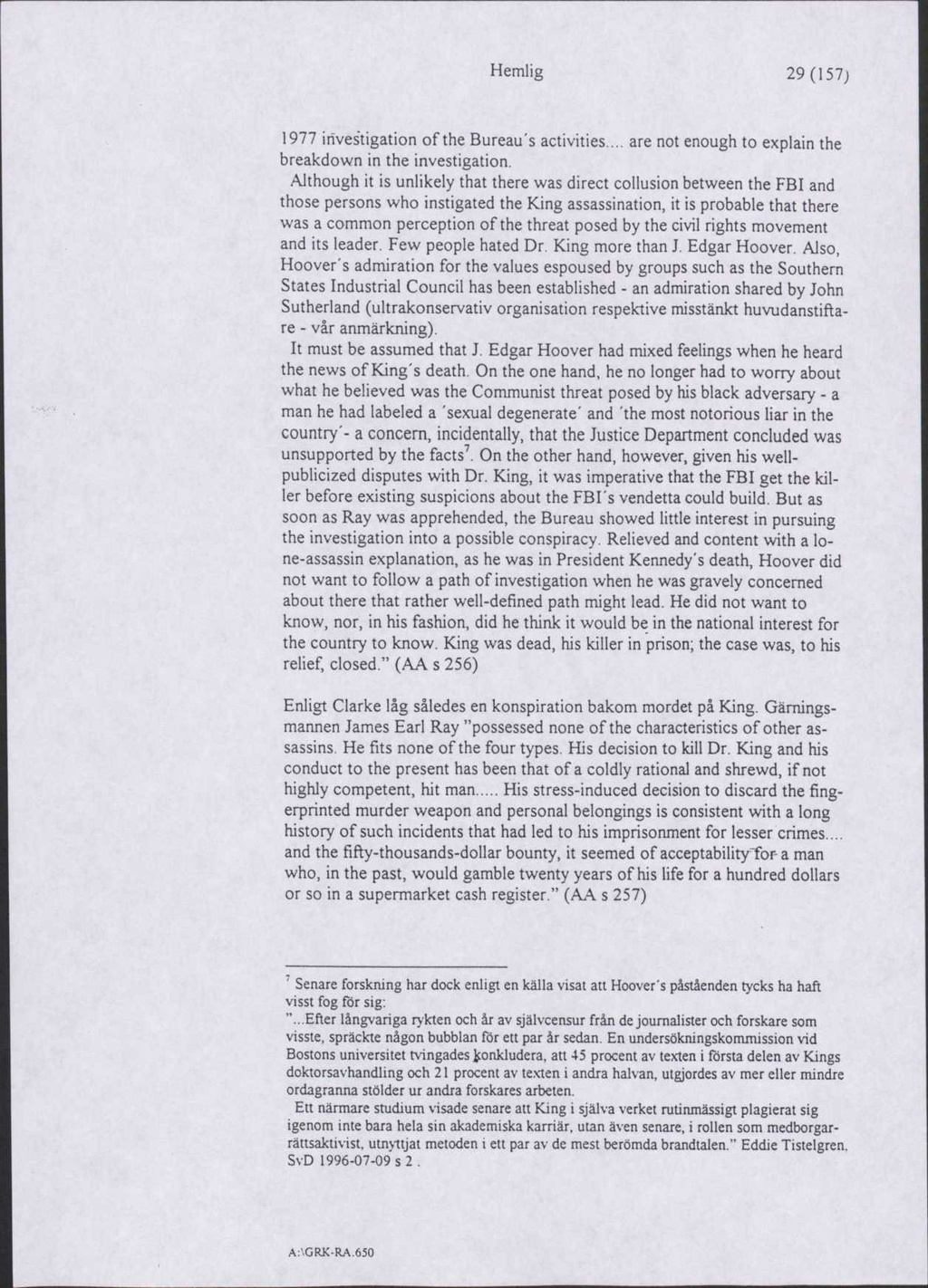)
1977 investigation of the Bureau's activities.... are not enough to explain the breakdown in the investigation.
Although it is unlikely that there was direct collusion between the FBI and those persons who instigated the King assassination, it is probable that there was a common perception of the threat posed by the civil rights movement and its leader. Few people hated Dr. King more than J. Edgar Hoover. Also, Hoover's admiration for the values espoused by groups such as the Southern States Industrial Council has been established - an admiration shared by John Sutherland (ultrakonservativ organisation respektive misstänkt huvudanstiftare - vår anmärkning)
It must be assumed that J. Edgar Hoover had mixed feelings when he heard the news of King's death. On the one hand, he no longer had to worry about what he believed was the Communist threat posed by his black adversary - a man he had labeled a 'sexual degenerate' and 'the most notorious liar in the country - a concern, incidentally, that the Justice Department concluded was unsupported by the facts”. On the other hand, however, given his wellpublicized disputes with Dr. King, it was imperative that the FBI get the killer before existing suspicions about the FBI's vendetta could build. But as soon as Ray was apprehended, the Bureau showed little interest in pursuing the investigation into a possible conspiracy. Relieved and content with a lone-assassin explanation, as he was in President Kennedy's death, Hoover did not want to follow a path of investigation when he was gravely concerned about there that rather well-defined path might lead. He did not want to know, nor, in his fashion, did he think it would be in the national interest for the country to know. King was dead, his killer in prison; the case was, to his relief, closed." (AA s 256)
Enligt Clarke låg således en konspiration bakom mordet på King. Gärningsmannen James Earl Ray "possessed none of the characteristics of other assassins. He fits none of the four types. His decision to kill Dr. King and his conduct to the present has been that of a coldly rational and shrewd, if not highly competent, hit man..... His stress-induced decision to discard the fingerprinted murder weapon and personal belongings is consistent with a long history of such incidents that had led to his imprisonment for lesser crimes.... and the fifty-thousands-dollar bounty, it seemed of acceptability for a man who, in the past, would gamble twenty years of his life for a hundred dollars or so in a supermarket cash register." (AA 257)
Senare forskning har dock enligt en källa visat att Hoover's påståenden tycks ha haft visst fog för sig: "...Efter långvariga rykten och år av självcensur från de journalister och forskare som visste, spräckte någon bubblan för ett par år sedan. En undersökningskommission vid Bostons universitet tvingades konkludera, att 45 procent av texten i första delen av Kings doktorsavhandling och 21 procent av texten i andra halvan, utgjordes av mer eller mindre ordagranna stölder ur andra forskares arbeten.
Ett närmare studium visade senare att King i själva verket rutinmässigt plagierat sig igenom inte bara hela sin akademiska karriär, utan även senare, i rollen som medborgarrättsaktivist, utnyttjat metoden i ett par av de mest berömda brandtalen." Eddie Tistelgren, SvD 1996-07-09 s 2.
